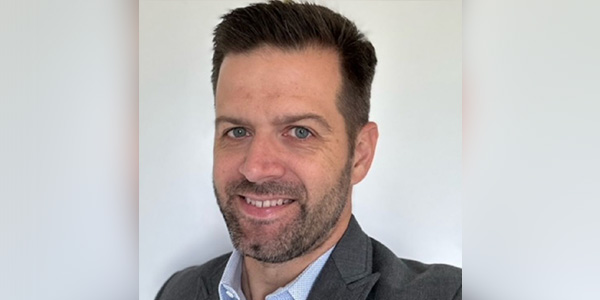As our society becomes increasingly polarized and divided, cultural cordiality is in crisis. Without the learned ability for communicating effectively and respectfully with those whose opinions differ from our own, societal strife will continue to spur avoidable discord. This as digital media consumption in the modern world is severely exacerbating the issue.
So profound the problem, Milan Kordestani, author of the new book, “I’m Just Saying: A Guide to Maintaining Civil Discourse in an Increasingly Divided World,” is elevating the national conversation and taking this issue head on. Below is a straightforward look at eight distinct areas Kordestani believes are not just challenging, but critically undermining the art of maintaining courteous communication in a world struggling with ability to listen — along with his tactical tips for constructive conversations through civil discourse.
Reflection
Reflection is a process that takes time and conscious effort, and one’s biases and intentions become more apparent with reflection. It’s key to accept criticism as a part of growth and to reflect critically on one’s own thoughts through meditation and contemplation. While examining the challenge of self-reflection and exploring the nature of bias, Plato’s “The Allegory of the Cave” can help us understand why we develop biases and how they affect our interactions.
For example, we may begin a discussion with someone assuming they have no knowledge of a topic just because they lack a degree or career experience in that field. But, our own bias in that situation — just like in Plato’s cave — is causing us to disregard the valid ideas and knowledge that person has to share.
Beyond Western stoicism, we can also apply Eastern philosophies to achieve optimal personal growth. One great way is to embrace the Japanese concept of kaizen, or continuous improvement, which can promote incremental growth and steady progress toward self-development goals. Zen Buddhism also offers clear and easily understandable approaches to silencing the world around you so you can aptly reflect, which is beneficial for reducing distraction while digging deeply into your motivations driving specific actions or beliefs.
Intention
It can be hard to focus on positive discourse in a world where argumentativeness and ill intent is encouraged or even rewarded. Do this by always bringing positive purpose to your conversations with the goal of embracing others and to engage in a harmonious debate. Reflection is also needed to understand one’s intention and, if our intention is ambiguous, it’s difficult to come to clearer conclusions. Work to discern and solidify your intention by reflecting on the various reasons why you are engaging in discourse in the first place. Ask yourself, “What is the most optimal outcome desired?”
Discerning the intentions of others to curb intellectual dishonesty is also part of the process. This includes better understanding body language, facial expressions and verbal cues that signal intent at the subconscious level. For example, if someone covers their mouth with their hand while listening to you, it might mean they are holding back something they want to express in the discussion. Here, you can consider pausing and asking the other person if they would like to interject before you continue speaking.
Tone
Tweaking the trifecta of tone, mood and intention is a tool for better discourse. Learn to assess your own tone by paying close attention to how your speech affects others relative to volume, pace, inflections and words chosen. Also reflect on how your tone correlates with your mood and stress levels and endeavor to be more controlled and intentional no matter what your temperament at the time.
You can also emulate the collaborative, desirable tone of some of your own favorite speakers and leaders who are professionally trained in the art. For example, try watching TED talks by notable experts, listening to how they use a controlled and deliberate tone to share knowledge about their industries and experiences.
Trust
Amid the notion of secular faith and trust, there is ample evidence that we as humans do have a strong desire to embrace respectful dialogue. For example, there are numerous examples of racism and bigotry being overcome through discussion and shared experiences with oppressed minorities, showing that common ground can be achieved across any divide. View both yourself and those you talk with as peers and equals on a path toward mutual understanding.
You can do this by making a concerted effort to ensure your own biases and perceptions are not prompting you to interact differently with diverse parties. Also, beware challenges like imposter syndrome and untrustworthy participation that can undermine the process. Utilizing your own self-confidence to compensate for difficult collaboration is a powerful north star. You can also reward trust in others by opening up and practicing transparency and appropriately tempered frankness in your discussions. Doing so will make you a more effective and authentic discussant.
Active listening
Simply “listening to others more” does not solve the problem of poor listening skills and discourse. Rather, growth is found through improving the quality of our listening. The real solution is active listening, as opposed to passive listening, along with a true dedication to being attentive during discourse. It’s best to listen rather than speak to foster respectful and productive discourse. If you find yourself talking with those who dominate conversation, try pointing out the other speaker’s behavior in a calm but direct way, such as calmly and politely saying, “I would appreciate it if I could make my point without interruption.”
You can also show others that you are being attentive by reframing and summarizing their points to show you are hearing and thoughtfully considering their views. There are also alternative forms of active listening, which can include utilizing body language and technology to communicate with those who are differently abled or speak another language.
Focus
To help you master your own focus quickly and efficiently, you can draw from both Eastern traditions and the practices of leading American entrepreneurs to develop practical, real-world habits that support improved focus. For one, the concept of Ichigyo Zammai, a Japanese practice that hones your focus through simplifying your attention, can be helpful — especially when paired with Zen mindfulness and meditative practices.
Doing so can help you take charge of your train of thought. Another helpful approach for staying focused through even the most convoluted or challenging discussions is to practice First Principles Thinking, following the lead of modern entrepreneurs and thought leaders, for which you constantly question processes in order to identify core problems and solutions.
Common ground
The first step to finding common ground in civil discourse is accepting that others have different opinions, and empathizing with their experiences and perspectives so that those opinions can be put into context. Find a human connection with anyone you are debating by being friendly and asking fun, personal questions to disarm and break down barriers between you.
Another powerful tool for building connections and finding common ground is humor. Sharing a laugh can show mutual fears and aspirations, reduce tension, produce a sense of camaraderie, and lighten the mood. Also, endeavor to step outside your comfort zone and expand your social circle to include people of diverse backgrounds and experiences. Doing so can help you understand why an empathetic approach to discourse can bridge even the greatest gaps in perspective.
Managing conflict
There is a real difference in sharing conflicting perspectives with others for the purpose of growing and engaging in intentionally malicious discourse. The importance of embracing conflicting opinions and learning from collaborative conflict is not to be underestimated. Learn to accept and reflect on constructive criticism by asking others to corroborate and expand on judgments you’ve received and encourage the provision of substantiating facts.
Also, refine perception skills to differentiate a valuable critique from belligerent expressions by examining the motivations of the other speaker. One way to identify bad faith actors, even as conversation is occurring, is to listen to their tone and examine how their discussion positions shift over the course of the conversation. Inconsistency is a red flag. Additionally, strive to protect yourself from the double-edged sword of social media when looking through your feeds. Examine how the algorithms can create artificial bubbles and open yourself up to embracing the differing opinions and ideas of individuals and groups that have new perspectives. A practical technique for resetting discourse that has deteriorated into outright conflict is to take a step back, disengage, assess your own tone and remind yourself of your ultimate intention. Doing so can help you model positive civil discourse and encourage the same from those around you.
With these insights, Kordestani seeks to instill a collective excitement to restore civil discourse and, with time, bring about a revolution of ideas built on respect and compassion for one another. Through personal reflection and acceptance of our flaws, we can begin the process of improving our discourse and sharing our ideas with the world more respectfully.
Merilee Kern, MBA, is a brand strategist and analyst who reports on industry change makers, movers, shakers and innovators, field experts and thought leaders, brands, products, services, destinations, and events. Kern is also founder, executive editor and producer of “The Luxe List” and host of the “Savvy Ventures” business TV show that airs nationally on FOX Business TV and Bloomberg TV, the “Savvy Living” lifestyle TV show airing in top U.S. markets, and the Savvy Ventures Podcast & Radio show available globally on W4CY Radio and all major podcast platforms. Connect with her at www.TheLuxeList.com and www.SavvyVentures.tv.














